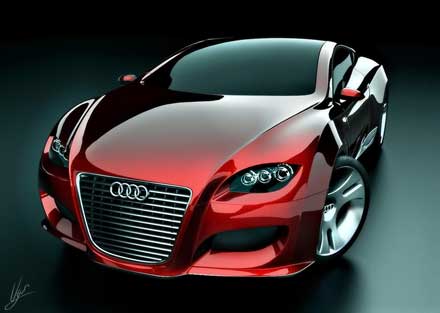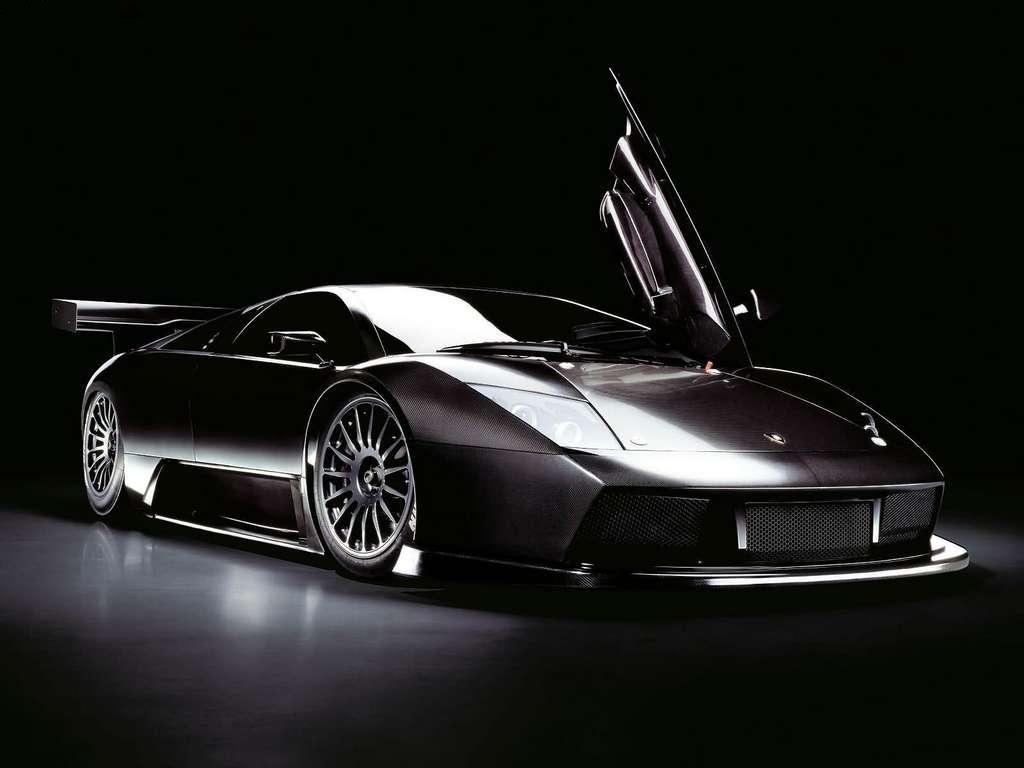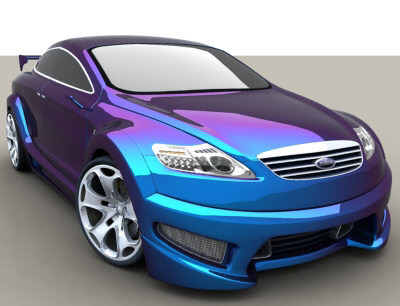 In an announcement Wednesday morning, Fiat S.p.A finalized its purchase / alliance with the Chrysler Group after the U.S. Supreme Court got out of the way of the deal thus opening a new page in Chrysler's history. While there's no way of accurately predicting what the future holds for the alliance, I must say that for numerous reasons that you can read about after the jump, I am not at all convinced that Fiat will save the 'new' Chrysler Group LLC. Maybe Fiat will rape benefit from Chrysler's assets and presence in North America, but that's another story entirely.
In an announcement Wednesday morning, Fiat S.p.A finalized its purchase / alliance with the Chrysler Group after the U.S. Supreme Court got out of the way of the deal thus opening a new page in Chrysler's history. While there's no way of accurately predicting what the future holds for the alliance, I must say that for numerous reasons that you can read about after the jump, I am not at all convinced that Fiat will save the 'new' Chrysler Group LLC. Maybe Fiat will rape benefit from Chrysler's assets and presence in North America, but that's another story entirely.  First of all let's take a closer look at Fiat S.p.A. The Italian group's automobile portfolio includes three-and-a-half mainstream brands: Alfa Romeo, Lancia, Fiat and its recently revived Abarth marque which is something like BMW's 'M' division. The group also controls the Ferrari and Maserati sports car brands as well as Iveco and Fiat Professional that builds light commercial vehicles.
First of all let's take a closer look at Fiat S.p.A. The Italian group's automobile portfolio includes three-and-a-half mainstream brands: Alfa Romeo, Lancia, Fiat and its recently revived Abarth marque which is something like BMW's 'M' division. The group also controls the Ferrari and Maserati sports car brands as well as Iveco and Fiat Professional that builds light commercial vehicles.
In the past two decades, Fiat's automobile division has proven successful in building two types of vehicles: city cars like the Panda mini and (Grande) Punto supermini and exotic sports cars such as the Ferrari F430 and Maserati GTs.
Sure the Italians have come up with some really great designs and ideas, but with a few exceptions and for a great number of reasons, Fiat and its Alfa Romeo and Lancia brands have yet to create a model that will dominate or even compete head on with the top-sellers in any other category - at least in Europe.
 Speaking about Lancia and Alfa Romeo, while Fiat Group's CEO Sergio Marchionne is 'playing big' with Chrysler LLC, the two historic Italian firms desperately need to update/refresh their model portfolio. We've heard talk about a variety of new models including SUVs, compact MPVs, coupes, sport sedans with RWD - you name it. But sketches and grapevine stories aside, it's just talk until now.
Speaking about Lancia and Alfa Romeo, while Fiat Group's CEO Sergio Marchionne is 'playing big' with Chrysler LLC, the two historic Italian firms desperately need to update/refresh their model portfolio. We've heard talk about a variety of new models including SUVs, compact MPVs, coupes, sport sedans with RWD - you name it. But sketches and grapevine stories aside, it's just talk until now.
Lancia, which has lost its identity ever since Fiat decided to turn the firm into a faux luxury carmaker for chicks and chick-like hairdressers with a low budget, has been left with an aging Ypsilon that is aimed squarely at women, a remasked version of Fiat's Idea small MPV called Musa and the weirdly positioned Delta that is a C-segment hatch trying to allure D-segment buyers. There's also the PSA Peugeot-Citroen co-developed Phedra minivan but we doubt anyone cares. No sports car, no five-door supermini, no three-door Delta, no sedan...
 Alfa Romeo is in a somewhat better position in terms of its car lineup. Aside from the new MiTo hatch, there's also the relatively fresh 159 Sedan and Sport Wagon, the Brera Coupe and Spider, and the 8C Competizione 'halo' supercar. What about Alfa's Golf-sized hatch? Well, it's called 147 and it has been in production since 2000 so it's no match for the modern C-segment hatches. Up until 2007, Alfa also offered the BMW 5-Series rivaling 166 but it went down the same way that the Lancia Thesis did.
Alfa Romeo is in a somewhat better position in terms of its car lineup. Aside from the new MiTo hatch, there's also the relatively fresh 159 Sedan and Sport Wagon, the Brera Coupe and Spider, and the 8C Competizione 'halo' supercar. What about Alfa's Golf-sized hatch? Well, it's called 147 and it has been in production since 2000 so it's no match for the modern C-segment hatches. Up until 2007, Alfa also offered the BMW 5-Series rivaling 166 but it went down the same way that the Lancia Thesis did.
Surprisingly, Lancia sold more cars in Europe than Alfa Romeo did in the first four months of 2009 (Lancia: 38,617 units, Alfa: 36,761 units). But either way, those numbers are very low. Just to get an idea, during the same sale period in Europe, MINI sold 38,879 units, Volvo 65,345 units and Skoda 155,864 (the Fiat brand delivered 352,234 cars).
 But the lack of models or ones that aren't successful/competitive, isn't the only problem that Fiat faces in Europe. In a recent study performed by J.D. Power, Fiat scored in the bottom quarter of more than 20 brands in vehicle quality and reliability in key European markets. "Fiat is below average in each of three markets that we measure -- Germany, France and the U.K. -- particularly in terms of vehicle quality and reliability," said Dave Sargent, vice president of automotive research at J.D. Power.
But the lack of models or ones that aren't successful/competitive, isn't the only problem that Fiat faces in Europe. In a recent study performed by J.D. Power, Fiat scored in the bottom quarter of more than 20 brands in vehicle quality and reliability in key European markets. "Fiat is below average in each of three markets that we measure -- Germany, France and the U.K. -- particularly in terms of vehicle quality and reliability," said Dave Sargent, vice president of automotive research at J.D. Power.
What I'm trying to say here is that the Fiat Group is not as successful and problem-free as many have portrayed the company to be. I've been hearing many voices around the net (mainly from sites in the U.S.) saying that Fiat will develop an array of sub- and compact models for Chrysler and Dodge based on its cars.
Maybe I'm missing something here, maybe I'm completely wrong, but if it's so easy and Fiat does have the funds, then could someone please explain to me why has it taken so long for Fiat to introduce core models like the Alfa 147 and Lancia Ypsilon replacements, or why is the company absent from important segments like compact MPVs and SUVs?
 Furthermore, as much as many would like to see American consumers abandoning larger vehicles (cars and trucks), this won't happen anytime soon. Maybe they'll downsize, but don't expect to see cars like the Panda or the Ford Fiesta coming anywhere close to the top spots in the sales chart. So while Fiat is really good in creating city cars, in order to succeed in the U.S., the company will need to focus on compact and mid-size sedans such as the Honda Civic and Accord as well as (like it or not) trucks and SUVs of various sizes.
Furthermore, as much as many would like to see American consumers abandoning larger vehicles (cars and trucks), this won't happen anytime soon. Maybe they'll downsize, but don't expect to see cars like the Panda or the Ford Fiesta coming anywhere close to the top spots in the sales chart. So while Fiat is really good in creating city cars, in order to succeed in the U.S., the company will need to focus on compact and mid-size sedans such as the Honda Civic and Accord as well as (like it or not) trucks and SUVs of various sizes.
And let's say for the sake of conversation, that Fiat will find the funds and the way to create or share front-wheel drive platforms for compact and mid-size models with Chrysler and its brands. What will happen with the American carmaker's larger models including trucks, SUVs and rear-wheel drive cars like the Chrysler 300?
 Unlike Chrysler's previous owner, Daimler, Fiat does not have a (mainstream) rear-wheel drive platform nor any SUV models (or experience for that matter). As you may already know, the Chrysler Group's 300 sedan, Dodge Challenger and even the new Jeep Grand Cherokee use a fair amount of Mercedes hardware beneath the sheetmetal. Maybe Chrysler's acquisition could justify the costs of developing a rear-wheel drive platform that could be used on Alfa Romeo models also. Maybe Fiat could inject some cash into Jeep and use the platforms and AWD systems to develop its own range of SUVs.
Unlike Chrysler's previous owner, Daimler, Fiat does not have a (mainstream) rear-wheel drive platform nor any SUV models (or experience for that matter). As you may already know, the Chrysler Group's 300 sedan, Dodge Challenger and even the new Jeep Grand Cherokee use a fair amount of Mercedes hardware beneath the sheetmetal. Maybe Chrysler's acquisition could justify the costs of developing a rear-wheel drive platform that could be used on Alfa Romeo models also. Maybe Fiat could inject some cash into Jeep and use the platforms and AWD systems to develop its own range of SUVs.
Too many maybes, too many questions, very few answers. If you've had the patience to reach the end of this lengthy post, I'd really like to hear your opinion on the matter. - John









